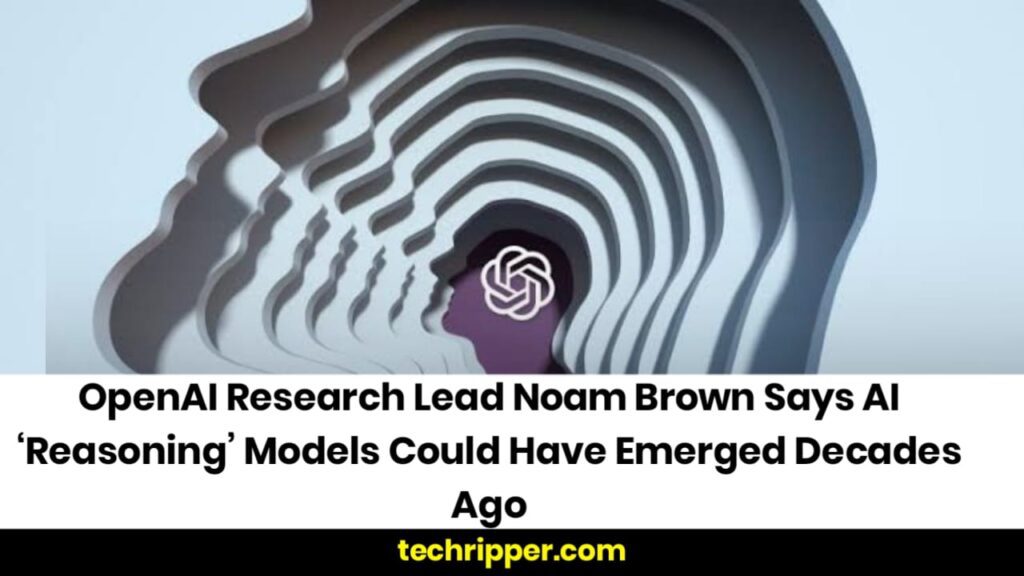Noam Brown, OpenAI’s AI reasoning research lead, believes certain AI reasoning models could have been developed two decades earlier if researchers had known the right approach and algorithms. Speaking at Nvidia’s GTC conference in San Jose, Brown highlighted how AI research often overlooked key areas. OpenAI’s research on AI reasoning has since helped shape better decision-making models.
The Role of Reasoning in AI
Brown’s research focused on game-playing AI, including his work at Carnegie Mellon University on Pluribus, which was the first AI to beat elite human poker players. Unlike traditional AI approaches that use brute-force computation, Pluribus relied on reasoning. More on AI decision-making explains how this shift improved accuracy.
This reasoning-based approach continued with o1, an OpenAI model that uses test-time inference, meaning it applies extra computation while running to improve accuracy. Brown noted that reasoning-based models perform better in areas like mathematics and science. Recent advancements in AI models show how these techniques are improving AI accuracy.

Challenges for Academia in AI Research
Brown admitted that academic institutions struggle with AI research due to limited access to computing power. However, he suggested universities can still make a difference by focusing on model architecture design instead of high-compute experiments. AI funding and research updates show how institutions are adapting to these challenges.
AI Benchmarks Need Improvement
Brown also highlighted issues with AI benchmarks, saying current methods don’t accurately measure real-world proficiency. He believes better benchmarks would help clarify AI model capabilities.
His remarks come as AI research faces budget cuts, with experts like Geoffrey Hinton warning that reduced funding could slow innovation. Brown stressed that benchmarking AI effectively doesn’t require high computing power and is an area where academia could contribute significantly.

Final Thoughts
Brown’s insights highlight both missed opportunities in AI history and the importance of reasoning-based models. As AI advances, collaboration between academia and industry will be key to unlocking smarter, more reliable AI systems.
Also Read : Nvidia Unveils ‘Personal AI Supercomputers’ for the Future of Computing

